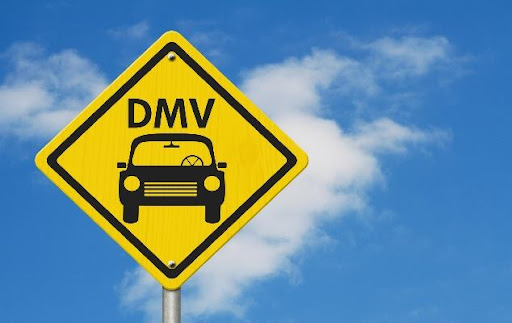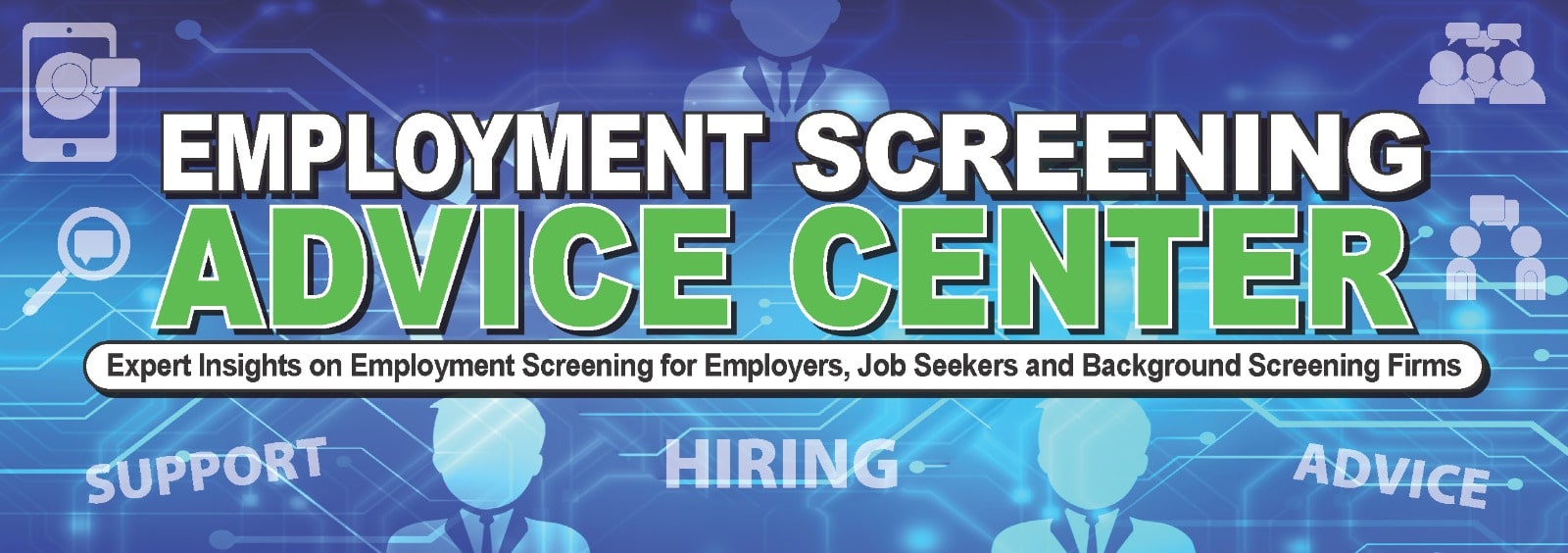
By W. Barry Nixon, COO, PreemploymentDirectory.com
Motor Vehicle Records (MVRs) checks continue to be a regular part of many background checks. HR professionals and employers that have been conducting background checks for a while are very familiar with them. However, for the those that may be new to background checking this type of check is necessary for any business that require employees to drive vehicles for business purposes. This includes fleets of delivery trucks as well as personal passenger vehicles if they are being used on behalf the business. MVRs help to reduce risk associated with driving accidents since employers can be held liable for the actions of their employees who operate vehicles for business purposes.
MVRs have become a regular part of the background screening process because the risk is very real since transportation incidents remain the most frequent type of fatal event for workers with 1,778 fatal injuries, accounting for 37.3 percent of all work-related fatalities according to the 2020 Census of Fatal Occupational Injuries conducted by the Bureau of Labor Statistics.
MVR checks help identify applicants who have a reliable driving record as well as those drivers that are high-risk drivers due to accidents, insurance lapses, traffic violations, license revocations, DUI charges that may not appear on criminal records. In addition, MVRs are one of most accurate sources of previous addresses which facilitate other types of checks being conducted and identity identification.
What is a Motor Vehicle Record Check?
“A Motor Vehicle Record (MVR) pulls information regarding a driver’s history from a state’s Department of Motor Vehicles (DMV). This is part of the background screening process for those who work in the transportation industry and aims to help employers hire applicants who have a reliable driving record and maintain safety and compliance on our roads.
When an employer requests an MVR, the following information is typically included in the report, but can differ depending on the state, position and industry:
- Driver’s license information (name, license number, date of birth, etc.)
- Violations
- License status (active/suspended/ revoked)
- Moving violations/convictions
- Accidents
- Automatic renewal notices
- Fair Credit Reporting Act (FCRA) compliance assistance
- Online tracking and reporting
- Applicant order entry
- Automated MVRs
- Consolidated invoicing”1
Motor vehicle Division Records
According to Steven Mason, in the article, Driving History as a Private Investigation Tool – “A common misconception is that a state’s Motor Vehicle Division (MVD) possesses and reports the complete driving record of anyone who is licensed or has a registered vehicle in the state. As much as that might make sense, it’s seldom the case. Thanks to the Driver’s Privacy Protection Act (DPPA), most [background] investigators have access to records held by their state’s MVD, which does make an investigator’s job somewhat easier.
The way in which driving records are updated (or not, as is often the case) is another hurdle in obtaining a complete record from the MVD. In almost all jurisdictions, documentation of driving infractions follows a similar course: a law enforcement agency cites an individual for failure to obey traffic laws. After the officer issues the citation, a copy of the citation is filed with the court of jurisdiction, the issuing law enforcement agency’s records department, the prosecutor’s office (criminal citations), and the MVD.
Once the case is disposed of, the court is supposed to send the final disposition to the MVD for inclusion in the individual’s driving record, but that frequently doesn’t happen. Even when dispositions are accurately recorded, many MVDs provide only a list of convictions, rather than a comprehensive record of all dispositions, to a requesting investigator. Whether or not dispositions are accurately recorded, the all-too-frequent result for investigators is an incomplete record.”
The Legal Landscape
The Driver’s Privacy Protection Act of 1994 is the primary law that restricts state DMVs from disclosing personally identifiable driver records without first obtaining the driver’s expressed written consent. There are some exceptions, however, including the release of information for purposes related to ‘safety of the operation of a motor vehicle.’ Potential hires, however, should be advised that, should the company disclose or misuse the information, a civil lawsuit may be filed, suing for actual and punitive damages, attorney’s fees, costs, and equitable relief.
At least thirty-nine states have enacted laws that require a company to notify employees when the security of personal information is breached, while 12 states have laws that govern the manner in which companies dispose of any personally identifiable information, such as shredding paper documents or erasing hard drive data.
“As is the case with all background checks, MVR checks require the written authorization and consent of the applicant. After getting consent, it is important to fully confirm the identity of the person being researched. Once the identity is verified a request to the MVD offices in all states where the individual has resided should be conducted.”2
In addition, the Department of Transportations’ Federal Motor Carrier Safety Administration (FMCSA) establishes the minimum background screening requirements for firms that hire commercially licensed drivers. If the company’s fleet operates commercial motor vehicles, it is subject to U.S. Department of Transportation and Federal Motor Carrier Safety regulations. The DOT driver qualification file requirements include:
- An application that is signed and dated by the driver, with a 10-year employment history;
- Three years of commercial driving experience; and
- an MVR check at the time of hire, as well as annually or, in some cases, every six months.
According to the Federal Motor Carrier Safety Administration (FMCSA), “employers have to request a pre-employment MVR in every state where a commercial driver’s license (CDL) was held within the previous three-year period. In addition, an MVR must also be requested annually for the employer to review as part of the annual review process to determine if the driver continues to meet requirements.”
While the federal legal requirement to pull a MVR is annual, the best practice is to use of continuous monitoring screening provider to ensure on-going screening of employees takes place. Waiting for 12 months to find out if a driver has engaged in behavior that puts your company at risk is too long. This proactive screening approach will contribute to vehicle or fleet safety, reduce liability, and ensure your client is compliant with legal requirements.
Employers in the transportation industry are required to comply with federal regulations set forth by the Department of Transportation (DOT).
What is the Clearinghouse?
The FMCSA Clearinghouse is a web-based system that provides the FMCSA and employers of commercial motor vehicle (CMV) drivers with the necessary tools to identify drivers who are prohibited from operating CMVs due to DOT drug and alcohol program violations. The Clearinghouse helps to ensure that such drivers receive the evaluation and treatment required by DOT regulation before being permitted to operate a CMV on public roads. Information maintained in the Clearinghouse will enable employers to identify drivers who commit a drug or alcohol program violation while working for one employer, but fail to subsequently inform another employer. Records of drug and alcohol program violations will remain in the Clearinghouse for five years, or until the driver has completed the return-to-duty process, whichever is later.3
Investigators should also ensure that clients are aware that DOT requires road test and certifications; written tests and certifications; a DOT physical; drug testing; a three-year record of inquiries of previous employers; certification of violations; review of driving records; a copy of a valid driver’s license; and other miscellaneous, but strongly recommended details.
Summary
Motor Vehicle Records (MVRs) checks continue to be a regular part of many background checks because they are a key tool in helping to reduce risk associated with driving accidents since employers can be held liable for the actions of their employees who operate vehicles for business purposes. In addition, MVRs are one of most accurate sources of previous addresses which facilitate other types of checks being conducted and identity identification.
Bibliography
- MVR checks: What are they and why are they important?, October 14, 2019;
https://www.bicmagazine.com/departments/lift-transport/mvr-checks-what-are-they-and-why-are-they-important/ - Mason, Steve, Driving History as a Private Investigation Tool, January 13, 2021;
https://www.privatenow.com/articles/2993/driving-history-as-a-private-investigation-tool - MVR checks: What are they and why are they important?, October 14, 2019;
https://www.bicmagazine.com/departments/lift-transport/mvr-checks-what-are-they-and-why-are-they-important/
ABOUT THE AUTHOR
- Barry Nixon is the COO, PreemploymentDirectory.com the leading background screening information portal and online worldwide directory of professional background screening firms and Suppliers to the background screening industry. He co-authored the landmark book, Background Screening & Investigations: Managing Hiring Risk from the HR and Security Perspective. He also is the publisher of award-winning newsletters, The Background Buzz and The Global Background Screener, and the author of the Background Checks column in PI Magazine.
In addition, Barry is a past recipient of the elite ‘Top 25 Influential People in Security’ by Security Magazine and past Co-Chair, International Committee for the Professional Background Screening Association (PBSA). He also served as a Global Ambassador for PBSA for many years.
You can contact Barry at 1-949-770-5264 or online at wbnixon@preemploymentdirectory.com


